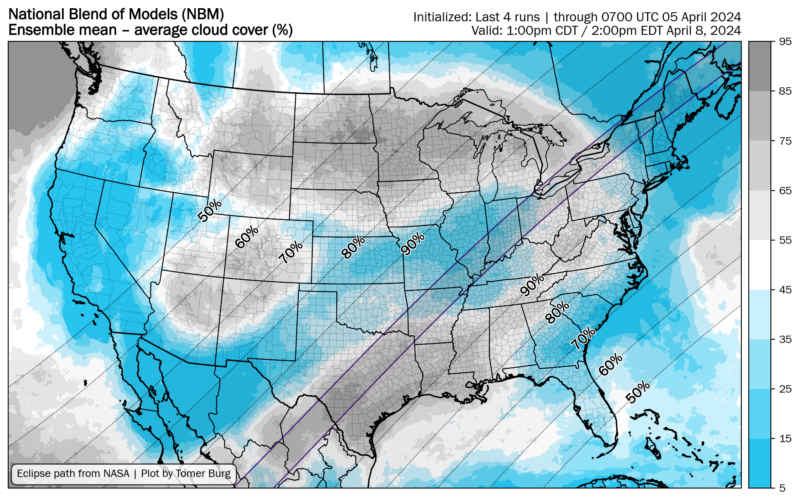Here are the winners and losers when it comes to clouds for Monday’s eclipse

Enlarge / Cloud cover forecast for 2 pm ET on Monday, April 8. (credit: Tomer Burg)
The best opportunity to view a total Solar eclipse in the United States for the next two decades is nearly at hand. Aside from making sure you're in the path of totality, the biggest question for most eclipse viewers has been, will it be cloudy?
This has posed a challenge to the meteorological community. That's because clouds are notoriously difficult to forecast for a number of reasons. The first is that they are localized features, sometimes on the order of a few miles or km across, which is smaller than the resolution of global models that provide forecasts five, seven, or more days out.
Weather models also struggle with predicting clouds because they can form anywhere from a few thousand feet (2,000 meters) above the ground to 50,000 feet (15,000 meters), and therefore they require good information about conditions in the atmosphere near the surface all the way into the stratosphere. The problem is that the combination of ground-based observations, weather balloons, data from aircraft, and satellites do not provide the kind of comprehensive atmospheric profile needed at locations around the world for completely accurate cloud forecasting.